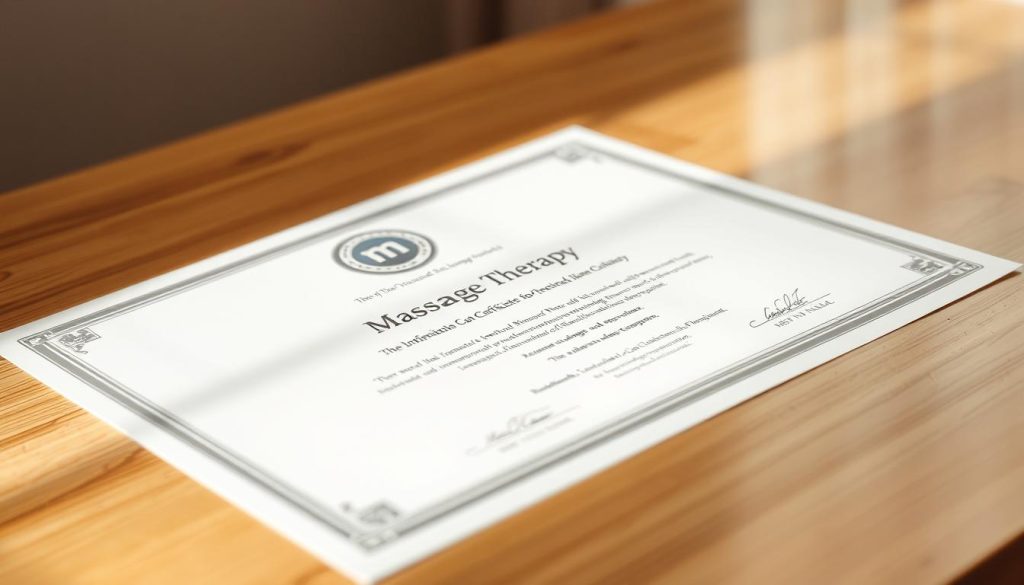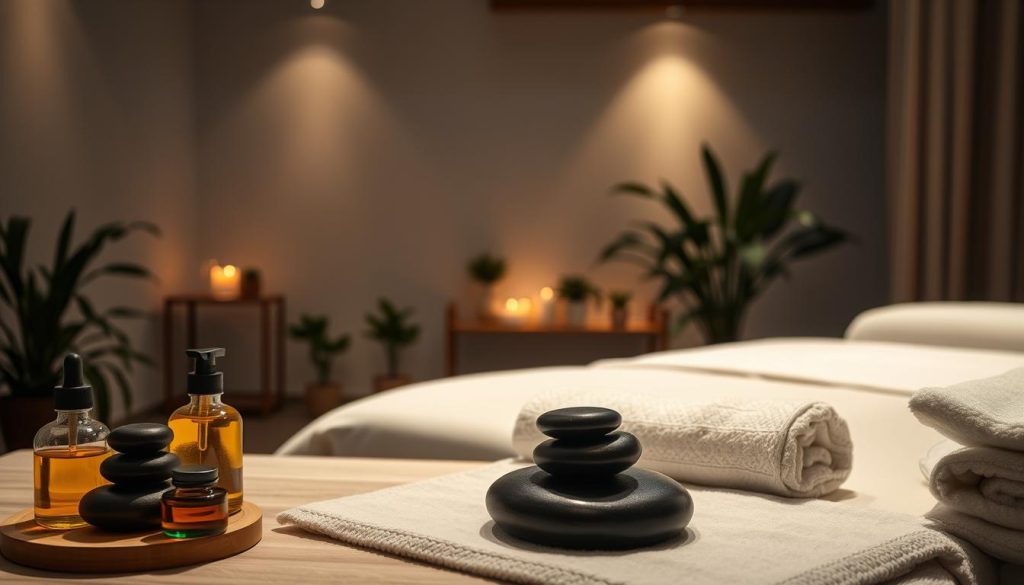Istanbul’s energy captivated me as I arrived. The city’s spices and sea air created an intoxicating blend. This vibrant metropolis became the backdrop for my journey as an independent massage therapist.
With over 15 million people, Istanbul offers vast potential for wellness professionals. The city’s mix of traditional hammams and modern spas creates diverse opportunities. However, success as an independent practitioner requires skill, determination, and cultural awareness.
Istanbul’s massage industry is growing rapidly. Locals and tourists alike seek quality relaxation services. This trend creates a promising landscape for skilled therapists.
The field offers room for various specializations. Therapists can explore ancient Turkish techniques or modern healing methods. The possibilities are endless in this thriving market.
Yet, challenges exist for independent massage therapists in Istanbul. The competitive wellness industry demands both therapeutic expertise and business savvy. Understanding local regulations is crucial for success.
Building a loyal client base takes time and effort. Mastering Turkish business practices adds another layer of complexity. These hurdles require dedication and perseverance to overcome.
Key Takeaways
- Istanbul’s population exceeds 15 million, offering a large potential client base
- The city hosts over 100 cultural festivals annually, attracting diverse clientele
- Average massage session costs range from 300 to 600 Turkish Lira ($10 to $21)
- The expat community in Istanbul is diverse, providing opportunities for multilingual therapists
- Istanbul’s climate is suitable for year-round massage therapy services
The Growing Demand for Massage Therapy in Istanbul’s Wellness Industry
Istanbul’s wellness industry is thriving, with massage therapy leading the way. The city blends traditional bathhouses with modern trends, creating unique opportunities. This mix has sparked high demand for various massage services among locals and tourists.
Current Market Trends and Statistics
Istanbul’s wellness sector is expanding rapidly. The Global Wellness Institute reports a rising trend towards healthier lifestyles. This shift has boosted the number of massage therapists in Istanbul.
Many specialists now offer both traditional and modern techniques. The industry’s growth reflects changing societal needs and preferences.
Cultural Acceptance of Massage Therapy
Massage therapy is deeply rooted in Turkish culture, thanks to ancient hammam traditions. This acceptance has nurtured a flourishing massage industry. Today, istanbul massage services offer diverse techniques, from traditional to modern.
Tourism Impact on Massage Services
Istanbul’s popularity among tourists has greatly boosted the massage therapy industry. Visitors seek authentic Turkish spa experiences, creating opportunities for local therapists. This influx has led to diverse services, from luxury spas to personalized treatments.
| Service Type | Average Price (USD) | Popularity |
|---|---|---|
| Traditional Turkish Hammam | 50-100 | High |
| Swedish Massage | 40-80 | Medium |
| Aromatherapy Massage | 60-120 | Medium |
| Thai Massage | 50-100 | Low |
Istanbul’s massage therapists are ready to meet growing wellness demands. The city’s unique mix of old and new offers countless opportunities. Those entering this thriving sector will find a rich, evolving landscape.
Challenges and Opportunities of Being Independent Massage Therapist in Istanbul
Istanbul’s thriving spa culture creates opportunities for skilled massage therapists. Traditional hammam experiences last up to 90 minutes and cost 200-500 Turkish Lira. This allows independent therapists to find their unique place in the market.
Independent masseuses enjoy flexible schedules and can set their own rates. They can earn 5,000-15,000 Turkish Lira monthly, depending on their services. Istanbul’s tourism boost, with 10 million yearly visitors, further enhances their earning potential.
Building a steady client base in a competitive market is challenging. Therapists must manage all aspects of their business, from bookings to supplies. Standing out among luxury spas like the Istanbul Medical Center can be tough.
Yet, the future looks bright for independent massage therapists. Turkey’s wellness market is set to grow 5.5% annually through 2025. Those who adapt can thrive in this dynamic field.
Legal Requirements and Licensing for Massage Therapists
Starting a massage therapy career in Istanbul involves navigating complex legal rules. The Turkish Ministry of Health regulates massage therapy practices. They set strict guidelines for certification and operation.

Certification Requirements
Becoming a licensed massage therapist in Istanbul requires 300 hours of training. This education covers anatomy, physiology, and various massage techniques. Surprisingly, only 25% of Istanbul’s massage therapists have proper licensing.
Business Registration Process
After certification, therapists must register their business with local authorities. This includes submitting documents, passing inspections, and paying fees. Only 15% of massage therapy businesses fully comply with health and safety rules.
Insurance and Liability Considerations
Operating without proper insurance is risky for massage therapists. Professional liability insurance protects against potential claims. Licensed therapists earn 30% more than unlicensed ones, partly due to client trust and legal compliance.
| Aspect | Licensed Therapists | Unlicensed Therapists |
|---|---|---|
| Training Hours | 300+ | Varies |
| Legal Compliance | 100% | 30% |
| Client Preference | 60% | 40% |
| Average Income | 30% higher | Base level |
Recent regulatory changes have introduced stricter penalties for unlicensed operations. Fines are now up to 50% higher. Compliance is not just a legal requirement but a smart business move.
Building a Client Base in Istanbul’s Competitive Market
Istanbul’s massage therapy market is growing at 10% annually. This creates opportunities for independent masseuses to succeed. However, competition is fierce with over 2,000 licensed massage establishments.
Masseuses must highlight unique selling points to stand out. Specialized techniques like Thai or deep tissue massage are in demand. These services have grown 25% in popularity over two years.
Tourists make up 65% of massage clients in Istanbul. Networking with hotels and travel agencies helps tap this market. Social media is also powerful. 55% of therapists credit platforms like Instagram for new clients.
Pricing strategy is crucial in this competitive field. Hourly rates for istanbul massage range from 300 to 600 Turkish Lira. Competitive rates and quality service attract and keep clients.
| Factor | Independent Masseuse | Wellness Centers |
|---|---|---|
| Client Retention Rate | 40% | 60% |
| Average Client Visit Frequency | 1.5 times/month | 2.5 times/month |
| New Client Referral Increase | 30% (with networking) | Data not available |
Building a loyal client base requires time and effort. Networking events can boost client referrals by 30%. Exceptional service and a welcoming atmosphere are key to success.
Essential Skills and Specializations for Success
Massage therapists in Istanbul need unique skills to thrive. Success depends on mastering traditional techniques and modern methods. Effective client communication is also crucial.
Traditional Turkish Massage Techniques
Istanbul’s spa culture requires proficiency in traditional Turkish massage. These time-honored techniques attract clients seeking authentic experiences. Skilled therapists use kese (exfoliation) and köpük (foam massage) in their services.
These practices debunk common massage myths. They showcase the true therapeutic value of traditional methods.
Modern Therapeutic Methods
Massage therapists must stay current with global trends. This includes deep tissue massage, sports therapy, and aromatherapy. Combining modern and traditional approaches creates unique services appealing to locals and tourists.
Client Communication Skills
Effective communication is vital for massage therapists. This involves understanding client needs and explaining treatments clearly.
- Understanding individual client needs
- Explaining treatments clearly
- Creating a comfortable environment
- Building trust and rapport

Strong interpersonal skills help therapists customize their services. This ensures client satisfaction and builds long-term relationships.
| Skill | Importance | Impact on Success |
|---|---|---|
| Traditional Turkish Techniques | High | Attracts clients seeking authentic experiences |
| Modern Therapeutic Methods | High | Caters to diverse client needs |
| Client Communication | Critical | Builds trust and ensures client satisfaction |
Mastering these skills helps massage therapists in Istanbul stand out. It allows them to build thriving practices in this dynamic market.
Marketing Strategies for Independent Therapists
Marketing is vital for independent massage therapists in Istanbul. Effective strategies can help you attract clients and grow your practice. Let’s explore key ways to boost your visibility and business.
Digital Marketing Techniques
Online marketing is crucial in today’s digital world. Optimize your website for local searches using keywords like “Istanbul massage”. Use popular Turkish social media to showcase your services.
Consider adding an online booking system for client convenience. This can make it easier for potential customers to schedule appointments.
Networking with Hotels and Spas
Partnering with hotels and spas can provide a steady stream of clients. Offer special packages to hotel guests to encourage bookings. These collaborations can be especially helpful for attracting tourists.
Finding your perfect Istanbul massage therapist often starts with recommendations from trusted sources. Building these relationships can boost your business significantly.
Building an Online Presence
Create a professional website showcasing your unique skills and specializations. Encourage satisfied clients to leave reviews, as positive feedback influences potential customers. Regularly update your site with engaging content about massage techniques and wellness tips.
- Leverage SEO for local searches
- Engage on social media platforms
- Collaborate with hotels and spas
- Maintain a professional website
- Encourage client reviews
These strategies can help Istanbul’s independent massage therapists market their services effectively. Consistency and authenticity are key to long-term success in this competitive field.
Setting Up Your Private Practice Space
A private practice space is vital for success as an Istanbul masseuse. The right setting can improve client experiences and boost your image. Consider location, parking, and client proximity when choosing a spot.
Legal requirements are crucial. Get necessary permits and pass inspections before opening. Invest in quality equipment like comfortable tables, clean linens, and soothing lighting. Music can create a relaxing atmosphere for your Istanbul massage sessions.
Mobile services offer an alternative option. This flexibility lets you bring massages to clients’ homes or hotels. It reduces costs but needs careful planning and portable gear.
- Choose an accessible location
- Obtain necessary permits
- Invest in quality equipment
- Create a soothing atmosphere
- Consider mobile services
Many therapists believe a dedicated space boosts their credibility. However, rental costs can greatly impact business viability in Istanbul. Balancing these factors is key to a thriving practice.
Financial Management and Pricing Strategies
Mastering finances and pricing is vital for Istanbul’s independent massage therapists. Turkey’s wellness industry offers unique opportunities for those who can balance costs and set competitive prices.
Cost Analysis and Budgeting
Start with a thorough cost analysis to thrive as an independent massage therapist. Consider rent, equipment, supplies, and marketing expenses. Create a budget for fixed and variable costs to make informed decisions.
Competitive Pricing Models
Pricing your services competitively is key to attracting and keeping clients. Research Istanbul’s market rates, which can vary widely. Independent massage therapists often charge between 300-800 Turkish Lira per hour.
| Service Type | Average Price (TL) | Duration (minutes) |
|---|---|---|
| Basic Massage | 300-400 | 60 |
| Turkish Hammam | 400-600 | 90 |
| Luxury Package | 700-800 | 120 |
Revenue Growth Opportunities
Boost your income by offering package deals or loyalty programs. Upsell additional services like aromatherapy or hot stone treatments to increase transaction value.
Partner with local hotels or spas for a steady client stream. This can enhance your revenue potential in Istanbul’s competitive market.
These financial strategies will position you for long-term success in Istanbul’s wellness sector. Stay flexible with pricing and services to adapt to market demands.
Cultural Considerations and Client Relations
Understanding cultural nuances is key for Istanbul massage therapists. The city’s mix of traditional and modern values affects client expectations. Skilled therapists navigate these cultural aspects to build strong relationships.
Respect for modesty is crucial in Turkish culture. Offering separate spaces for men and women increases comfort. Clear communication about draping and service boundaries builds trust.
Language barriers can be challenging. Learning basic Turkish phrases or providing translations enhances the client experience. This effort shows respect and helps bridge cultural gaps.
Istanbul’s spa industry serves both locals and tourists. A study found 97% of global consumers view spas positively. This allows therapists to blend Turkish techniques with modern methods.
Creating a welcoming space for diverse preferences is vital. This may include offering various massage styles, from hammam to Western treatments. Respecting cultural norms while maintaining professional standards helps build a loyal clientele.
Conclusion
Istanbul’s massage therapy market is growing rapidly. The projected growth rate is 5.5% from 2023 to 2028. This creates great opportunities for independent massage therapists in the city.
Private sessions are in high demand. 60% of clients prefer personalized experiences over public spa treatments. Success requires a mix of traditional and modern techniques.
Half of the clients favor classic methods like Swedish massage. The other half seeks innovative wellness practices. Customization is crucial, with 85% of clients valuing tailored approaches.
90% of therapists offer consultations to meet unique client needs. Luxury private sessions can cost between 500 and 1,200 Turkish Lira. This shows significant financial potential.
Client satisfaction and word-of-mouth marketing are key to success. 80% of happy clients recommend their therapists to others. Istanbul offers a rewarding career path for passionate massage professionals.






